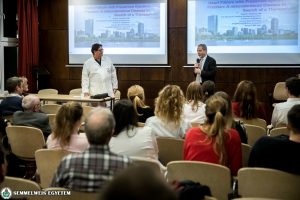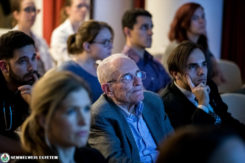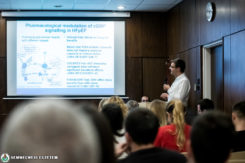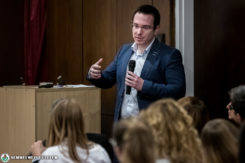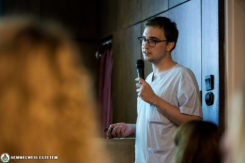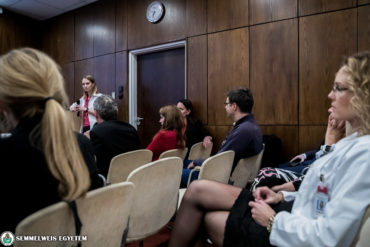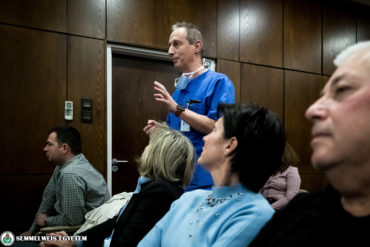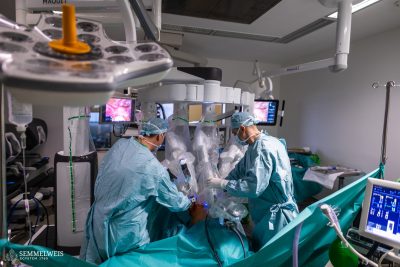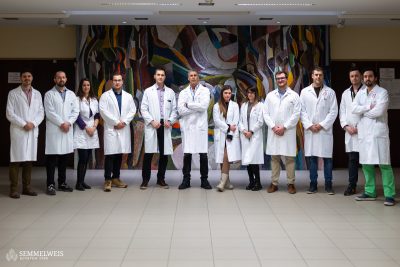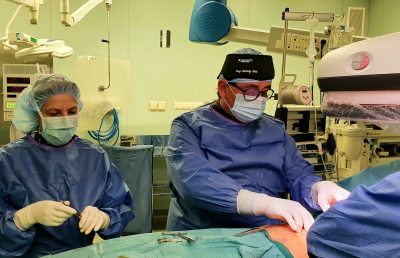Dr. Scott David Solomon, world-renowned professor of cardiology at Harvard University gave a lecture at the Heart and Vascular Centre, one day before the Doctor Honoris Causa ceremony, where he received an honorary doctor title at Semmelweis University. During the event organized by the National Heart Program, he spoke about one of his main areas of research, heart failure with preserved ejection fraction (HFpEF), among others.
The programme was opened by Rector Béla Merkely, Director of the centre and host of the event. Dr. Scott David Solomon delivered a lecture at the clinic entitled “Heart Failure with Preserved Ejection Fraction – A Misunderstood Disease in Search of a Therapy” before receiving Semmelweis University’s honorary doctor title at the Doctor Honoris Causa ceremony taking place at the Semmelweis Salon the next day. In his lecture, he first talked about the pathophysiology of heart failure with preserved ejection fraction (HFpEF), and then focused on large, multicentric clinical trials involving drugs that have so far failed to produce significant results in the treatment of HFpEF patient groups. He stressed that the disease is not a justification of diastolic dysfunction alone, and is not solely due to the presence of comorbidities. This encourages researchers to carry out further investigations and, in the absence of evidence, causes significant difficulties in daily patient care. One of the milestone studies of HFpEF treatment may be the PARAGON multicentric, randomized study, which examines the combination of the sacubitril/valsartan angiotensin receptor blocker and the neprilysin inhibitor.
After Professor Solomon’s lecture, young scientists of the Heart and Vascular Centre Dr. Tamás Radovits, Dr. Attila Kovács, Dr. Bálint Lakatos, Dr. Andrea Molnár, Dr. Márton Tokodi, Dr. Annamária Kosztin and Dr. Csilla Czimbalmos presented their scientific projects, such as the pharmacological modulation of cGMP signal transmission in the HFpEF animal model, the role of right ventricular and left atrial function in athletes and transplanted patients, the role of “machine learning” in research and the clinic’s first so-called “investigator initiated” study, BUDAPEST CRT Upgrade study, which has a key role in the National Heart Program supported by the National Research, Development and Innovation Office.
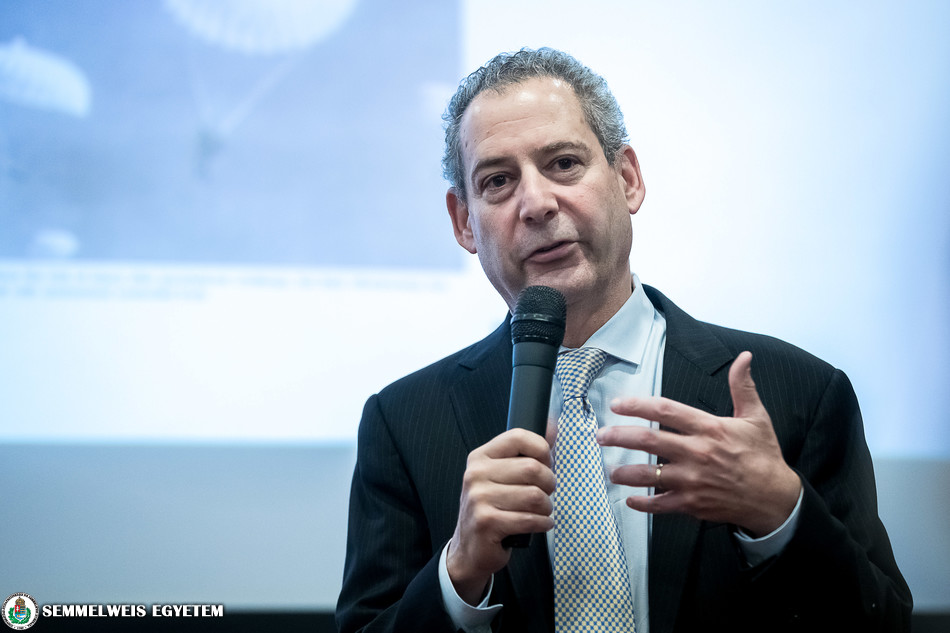 Dr. Scott David Solomon, world-renowned professor of cardiology, graduated at Harvard Medical School in 1986 and later became the head of the Division of Cardiovascular Medicine at the Centre for Internal Medicine at Brigham and Women’s Hospital. Since 1997, he has been head of the Cardiac Imaging Core Laboratory at Brigham and Women’s Hospital and of the Clinical Trials Endpoint Centre. Since 2000, he has been the director of the non-invasive cardiology division of the hospital.
Dr. Scott David Solomon, world-renowned professor of cardiology, graduated at Harvard Medical School in 1986 and later became the head of the Division of Cardiovascular Medicine at the Centre for Internal Medicine at Brigham and Women’s Hospital. Since 1997, he has been head of the Cardiac Imaging Core Laboratory at Brigham and Women’s Hospital and of the Clinical Trials Endpoint Centre. Since 2000, he has been the director of the non-invasive cardiology division of the hospital.
Professor Solomon’s major area of research is the study of the risk factors of patients undergoing myocardial infarction, the investigation of factors leading from high blood pressure to heart failure, and the study of heart failure with preserved ejection fraction patients. His work was ground-breaking in several respects: he was one of the first people to use cardiologic imaging methods for the development of cardiology medicines and devices, as well as in clinical trials.
Currently, he is the head of the PARAGON-HF clinical research on heart failure with preserved ejection fraction patients, in which the Heart and Vascular Centre also participates, as the centre to involve the highest number of patients. In addition, he has been collaborating with the clinic in joint research projects for 10 years. During this period, 14 joint publications on the medical and instrumental treatment of heart failure have been published.
Source: National Heart Program
Photo: Zoltán Adrián
Translation: Diána Módos
